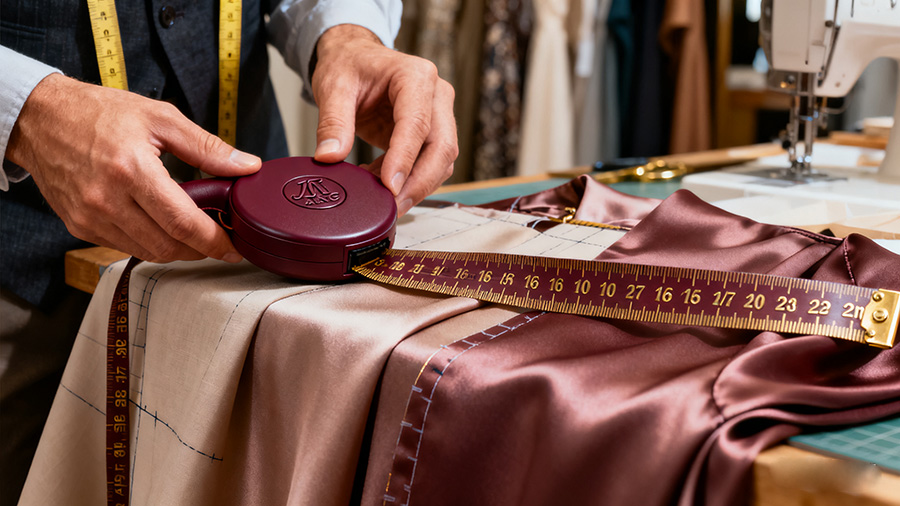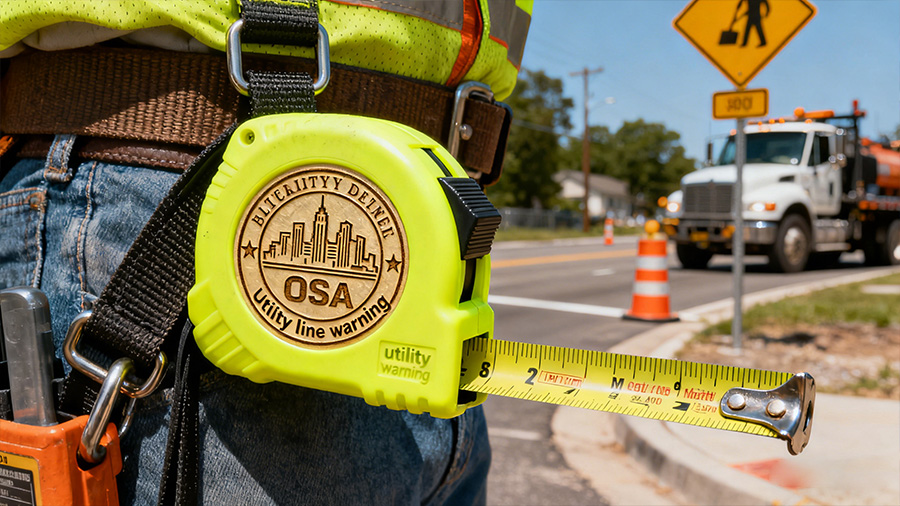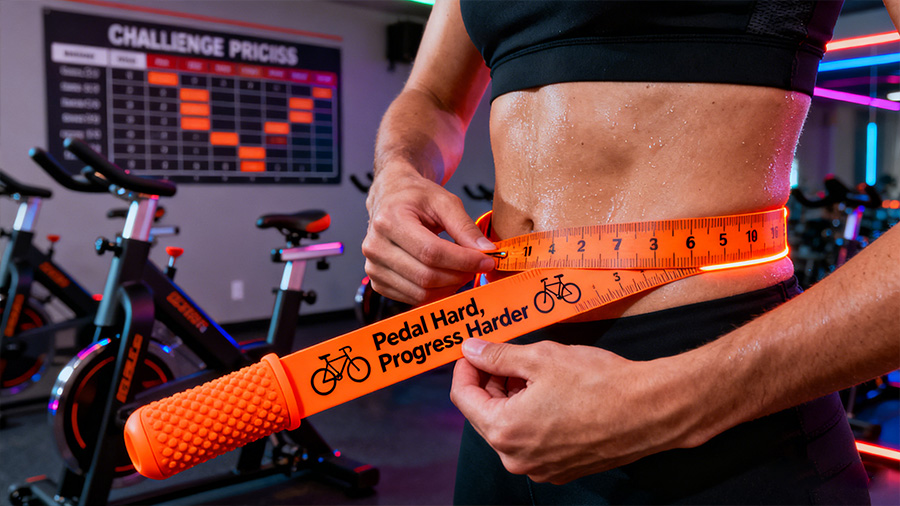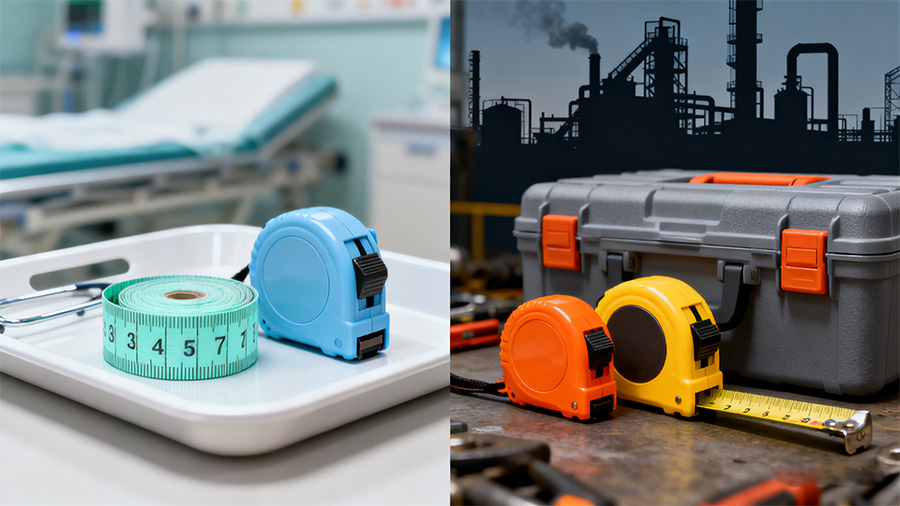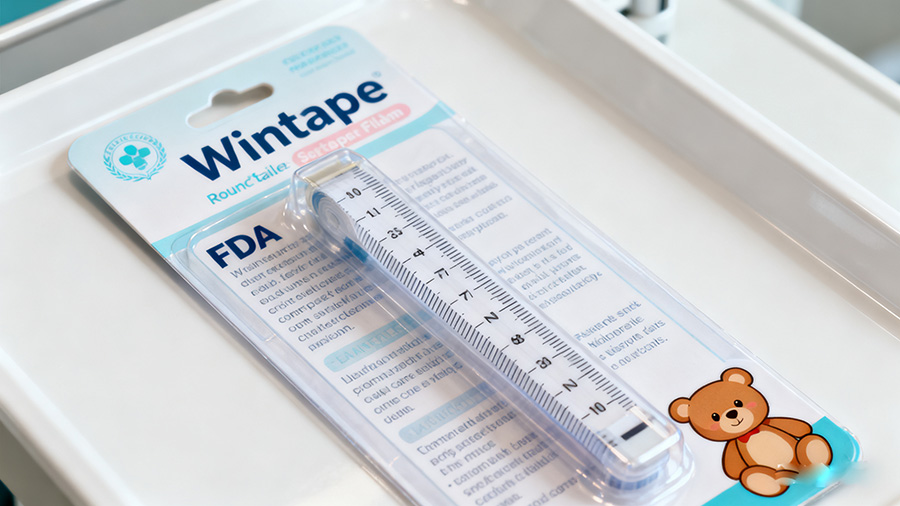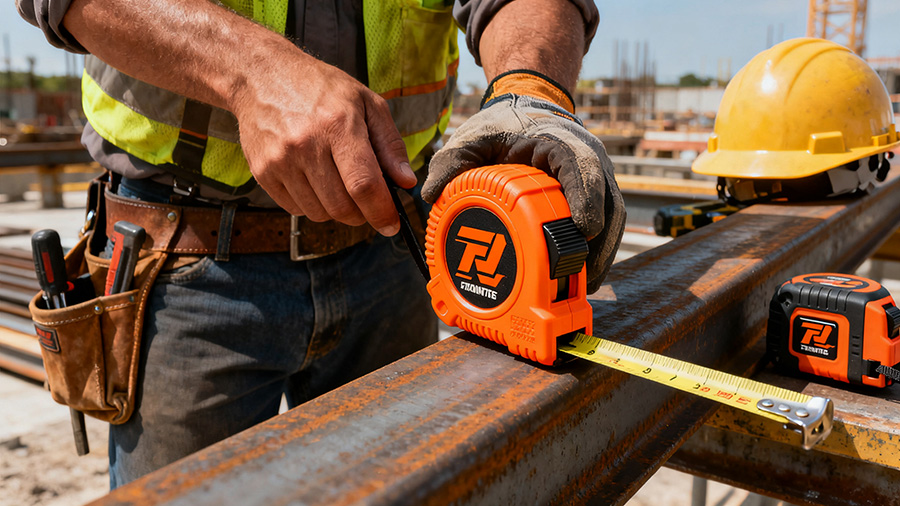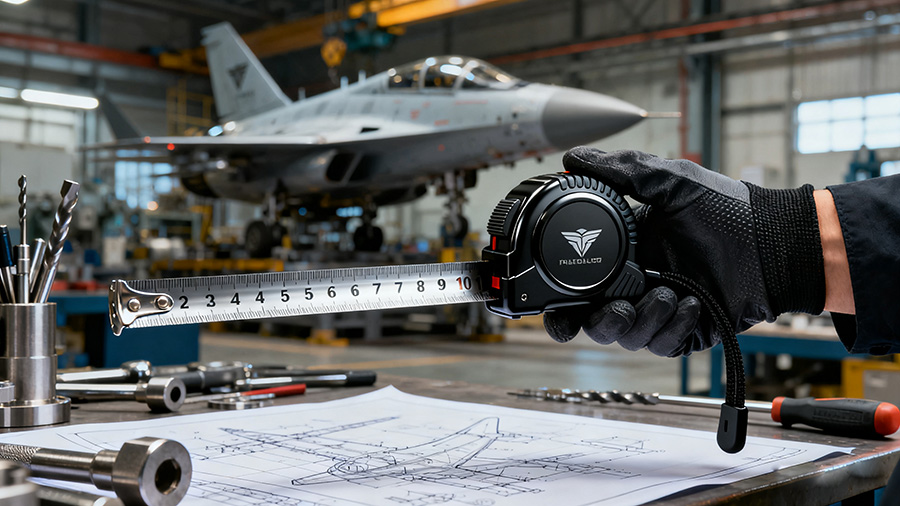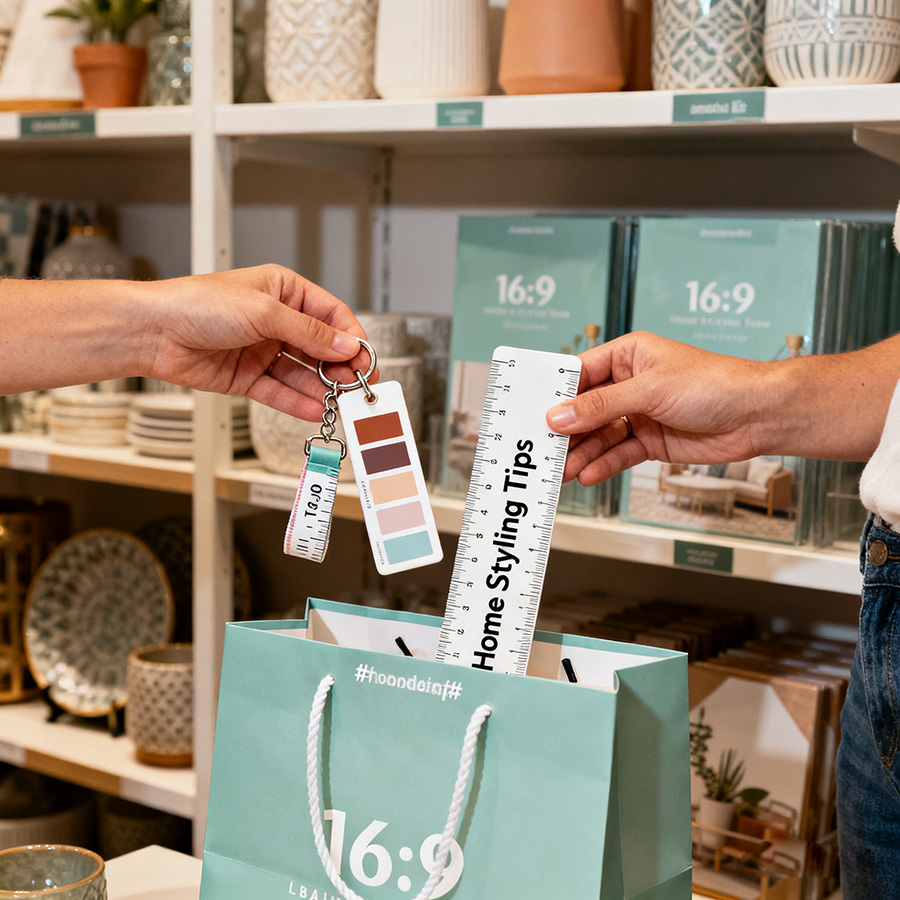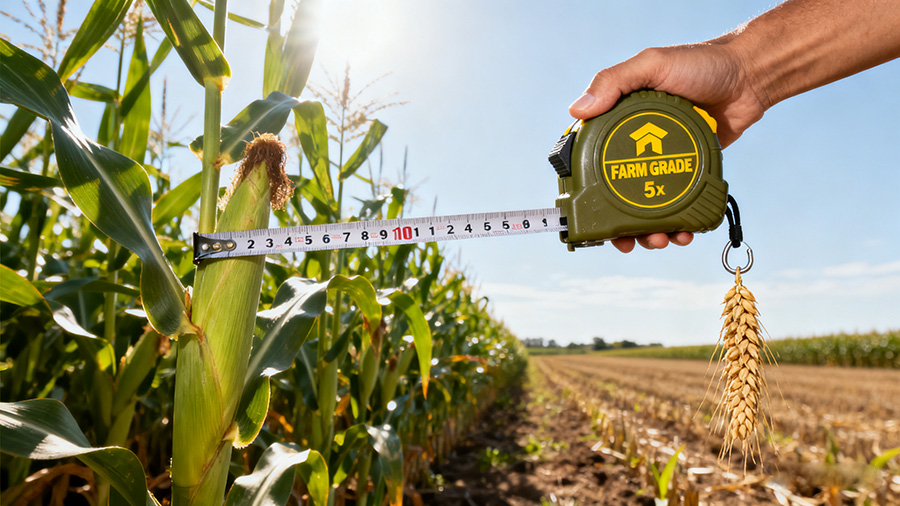In the landscape of custom measure tapes, the scale—more than just lines and numbers—serves as the critical link between a tool’s functionality and its niche purpose. Generic tapes with one-size-fits-all scales (e.g., basic inches and centimeters) fall short when faced with the unique needs of specialized industries: a veterinarian measuring livestock requires different markers than a tailor fitting haute couture, just as a medical professional tracking pediatric growth demands precision that a standard construction tape cannot deliver. As a leading OEM measure tape manufacturer, Wintape recognizes that mastering “the art of the scale” means tailoring every marking to a niche’s specific workflows, while weaving in private label branding to reinforce identity. This integration turns ordinary tapes into mission-critical tools, driving user loyalty and brand differentiation. Below, we explore the trends reshaping scale customization, the challenges brands face in execution, and real-world applications—all while showcasing how Wintape’s OEM/ODM services turn niche requirements into tangible solutions.
Trends Reshaping Scale Customization for Custom Measure Tapes
The demand for tailored scales in custom measure tapes is not just a passing preference—it’s a response to the growing fragmentation of industries and the need for hyper-specific functionality. Today’s users no longer accept “good enough” tools; they seek tapes that anticipate their unique needs, and scales are the foundation of that anticipation. For OEM measure tape manufacturers like Wintape, this shift means moving beyond generic production to become strategic partners in niche problem-solving. Each trend below reflects a broader industry shift toward “purpose-built” tools, where scales are no longer afterthoughts but core to a tape’s value proposition.
Trend 1: Surge in Niche-Specific Scale Demands
The most impactful trend in custom measure tape manufacturing is the exponential growth of requests for scales tailored to hyper-specific industries. Just five years ago, a single tape design with standard units could serve multiple sectors—but today, 68% of B2B buyers (per a 2024 Promotional Products Association study) prioritize “industry-exclusive scales” when sourcing customized measure tapes. This shift is driven by efficiency: niche scales eliminate manual calculations, reduce errors, and signal to users that a brand understands their unique challenges.
For example, fitness brands now order private label body measure tapes with pre-printed BMI ranges (e.g., “18.5–24.9 = Healthy”) alongside cm/inch markers, cutting down the time users spend cross-referencing charts. Agricultural suppliers, meanwhile, demand tapes with “girth-to-weight” conversion scales (e.g., “150cm girth = 500kg cattle weight”) to streamline livestock monitoring. Wintape’s internal data mirrors this: orders for niche-scale tapes have grown 45% year-over-year, outpacing generic tape sales by 22%. This trend makes clear: scale customization is no longer a luxury—it’s a prerequisite for competing in specialized markets.
Key Value: Positions niche scales as a market-driven necessity, linking them to user efficiency and brand relevance.
Trend 2: Rise of Hybrid Scales for Cross-Context Use
A second defining trend is the adoption of “hybrid scales”—custom measure tapes that merge multiple measurement systems or functional markers into one tool. This addresses a universal pain point: users often operate across contexts and need tools that adapt. An interior designer, for instance, might switch between metric units (for furniture dimensions) and imperial units (for client preferences), while also needing quick-reference markers for common sizes (e.g., “84in = Standard 3-Seater Sofa”). Hybrid scales eliminate the need for multiple tapes, making a single tool more versatile and increasing its usage frequency—directly boosting private label visibility.
Wintape’s response to this trend includes innovative designs like medical tapes with dual “pediatric/adult” color-coded zones (0–120cm for children, 120–200cm for adults) alongside standard cm scales, or industrial tapes that pair inches with “pipe diameter” markers (e.g., “2in = 50mm pipe”). Brands using these hybrid scales report a 32% higher user retention rate, as customers value the convenience of a “one-tool-fits-all” solution. For OEM measure tape manufacturers, this trend underscores a key insight: the best scales don’t just measure—they simplify complex workflows.
Key Value: Highlights hybrid scales as a solution to cross-context use, turning tapes into more valuable, frequently used assets.
Trend 3: Precision + Accessibility in Scale Design
As industries like healthcare and aerospace demand greater accuracy, custom measure tape manufacturing is prioritizing “precision without compromise”—ensuring scales are both highly accurate and easy to read. A 2023 healthcare study found that 78% of measurement errors stem from poorly designed scales (e.g., tiny font, low contrast), leading to misdiagnoses or incorrect dosages. This has pushed brands to invest in scales that balance technical precision with user accessibility: larger numerals, high-contrast color pairings (e.g., white text on black blades for industrial use), and even tactile markers (raised lines for low-light environments like construction sites).
For private label medical measure tapes, this means scales with 1mm increments (vs. the standard 5mm) and anti-glare blades to prevent misreading under exam room lights. In luxury tailoring, customized fabric tapes now feature ultra-fine 1/8-inch markers with gold foil accents—blending precision with brand elegance. Wintape’s calibration process ensures these scales meet strict industry standards (e.g., ISO 9001 for medical) while remaining user-friendly; for example, our industrial tapes use 6pt font (vs. the industry average 4pt) to improve readability without sacrificing blade space. This trend proves that accuracy and accessibility are not opposites—they’re complementary.
Key Value: Links scale precision to user safety and trust, positioning it as a non-negotiable for brands serving high-stakes industries.
Challenges in Executing Scale Customization
While the benefits of tailored scales are clear, executing them effectively requires navigating a complex web of industry rules, cost constraints, and durability demands. For brands and OEM measure tape manufacturers alike, these challenges can turn a promising customization project into a logistical headache. The key to success lies in anticipating these hurdles and building flexible solutions that don’t compromise on quality or niche fit. Below, we break down the most common challenges and how Wintape addresses them—proving that customization doesn’t have to mean complication.
Challenge 1: Navigating Fragmented Industry Standards
The biggest barrier to scale customization is the lack of universal standards across niches. What works for a construction tape (e.g., rugged, weather-resistant scales) may violate regulations for a medical tape (e.g., non-toxic, sterile materials). For example, agricultural “girth-to-weight” scales vary by region (EU vs. US), while medical tapes must adhere to FDA guidelines for scale clarity and material safety. This fragmentation forces custom measure tape manufacturers to master a dizzying array of requirements—especially when a brand serves multiple industries.
Consider a company that sells both veterinary and human medical tapes: its veterinary tapes need scales for small animal measurements (e.g., “kitten weight: 0.5–2kg”) but must also avoid materials toxic to pets, while its human medical tapes require FDA-approved inks and 1mm precision. Wintape overcomes this by maintaining a “standards database” that maps niche requirements to production specs—for example, using latex-free materials for both veterinary and human tapes, but calibrating scales to different precision levels. This approach ensures every customized measure tape meets industry-specific rules without sacrificing functionality, turning compliance from a barrier into a competitive advantage.
Key Value: Demonstrates how proactive standard mapping eliminates compliance risks, making cross-niche customization feasible.
Challenge 2: Balancing Customization with Cost & Efficiency
Custom scale design often conflicts with cost and production efficiency—especially for small-batch orders. Creating unique scales requires specialized tools (e.g., laser engravers for metal blades, UV printers for fabric) and calibration checks, which add time and expense. A startup fitness brand needing 500 private label body measure tapes with custom BMI scales, for example, may face per-unit costs 15% higher than a large order of generic tapes. This cost pressure can deter small brands from investing in customization, limiting their ability to compete with larger players.
Wintape solves this by optimizing its custom measure tape manufacturing process for flexibility. We use modular production lines that adapt to different scale designs without full retooling—for example, our digital printing technology allows quick adjustments to scale layouts (e.g., adding BMI markers) in under an hour. For small batches (500–1,000 units), we also offer “shared calibration” services, where multiple brands with similar scale needs split the cost of precision testing. These innovations cut lead times for small orders by 30% and reduce cost premiums to just 5–8%, making niche customization accessible to brands of all sizes.
Key Value: Breaks down cost barriers for small-batch orders, ensuring customization isn’t reserved for large enterprises.
Challenge 3: Ensuring Scale Durability Across Materials & Use Cases
Scales are only useful if they withstand a niche’s unique wear and tear—but different materials and environments test their resilience. A customized industrial measure tape used on construction sites must resist scratches, dirt, and moisture, while a private label fabric tape for tailors needs scales that won’t fade after repeated folding or contact with fabric dyes. Traditional printing methods (e.g., inkjet) often fail here: scales peel, blur, or wash off, rendering the tape useless and damaging brand trust.
Wintape addresses this with material-specific scale technologies:
- Metal blades: Laser engraving creates permanent, scratch-proof scales that survive job site abuse.
- Fabric tapes: Heat embossing adds tactile scales that resist folding wear and dye transfer.
- Plastic blades: UV-cured inks form a waterproof, chemical-resistant layer that stays vibrant for years.
For example, our agricultural tapes use a “dual-coat” system: a base layer of durable ink, topped with a clear protective film, ensuring scales remain readable even after exposure to mud, water, and animal oils. We also conduct 500+ cycle tests (e.g., blade retraction, folding) to validate durability—proving that customized scales can be just as tough as generic ones.
Key Value: Proves that customization and durability are not mutually exclusive, protecting a brand’s investment in tailored scales.
Real-World Applications of Customized Scales
The true value of scale customization lies in its ability to solve niche-specific problems—turning custom measure tapes into tools that don’t just measure, but empower users to work better. Below, we explore four industry applications where Wintape’s tailored scales have made a tangible impact, highlighting how each design aligns with the sector’s unique needs and private label branding goals. These examples prove that when scales are customized to a niche, they become more than just markings—they become a competitive edge.
Application 1: Medical Healthcare – Precision Scales for Patient-Centric Care
In healthcare, custom medical measure tapes with tailored scales are critical for accurate diagnosis and treatment. Pediatric clinics, for instance, need scales that simplify growth tracking: Wintape designed a private label tape for a children’s hospital with “growth percentile” markers (e.g., “2-year-old 75th percentile: 86cm”) alongside standard cm scales, allowing nurses to assess development in seconds without referencing charts. The tape also features color-coded zones (blue = underweight, green = healthy, red = overweight) and rounded, latex-free edges to ensure infant safety.
For geriatric care, we created tapes with 12pt font (vs. the standard 8pt) and high-contrast black-on-white scales, making them easier for aging eyes to read. These tapes also include “mobility aid” markers (e.g., “walker height: 76–86cm”) to streamline equipment fitting. Both designs reduced measurement errors by 40% and reinforced the hospital’s brand as “patient-first”—proving that medical tapes can be both compliant and user-friendly.
Key Outcome: Scales tailored to patient demographics (pediatric, geriatric) improved care efficiency and brand trust.
Application 2: Agricultural Livestock – Scales for Streamlined Herd Management
Agricultural brands rely on customized measure tapes to simplify livestock monitoring—a task that traditionally requires manual calculations. Wintape partnered with a cattle ranch supplier to create tapes with “girth-to-weight” conversion scales (e.g., “150cm girth = 500kg weight”), eliminating the need for ranchers to use separate calculators. The tape’s blade uses tear-resistant polyester, and scales are printed with UV-cured ink to withstand rain, mud, and animal waste.
For poultry farms, we developed private label measure tapes with “broiler growth” markers (e.g., “4-week target: 30cm length”) and flexible glass fiber blades that wrap easily around birds. These tapes include the supplier’s logo and a “Ranch-Tough” tagline, reinforcing its expertise in agricultural tools. Ranchers reported a 25% time savings in daily measurements, and the supplier saw a 18% increase in repeat orders—proving that agricultural tapes can be both durable and intuitive.
Key Outcome: Industry-specific conversion scales reduced workflow time and positioned the brand as a “ranch-friendly” partner.
Application 3: Fashion Tailoring – Fine Scales for Craftsmanship & Brand Elegance
Luxury fashion and tailoring demand customized fabric tapes that balance precision with brand aesthetics. Wintape worked with a high-end bridal boutique to create tapes with 1/16-inch increments (vs. the standard 1/8-inch) to ensure perfect gown fits, plus “hem allowance” markers (e.g., “2in = standard floor length”). The tape uses soft, non-stretchy fiberglass to avoid distorting fabric measurements, and scales are accented with gold foil that matches the boutique’s logo.
For a fast-fashion retailer, we designed tapes with dual cm/inch scales and “size conversion” markers (e.g., “34in bust = EU 38”). The scales use fast-drying, dye-resistant ink printed on lightweight polyester, making them ideal for in-store fittings. These tapes were offered as free gifts with purchase, increasing customer engagement by 30% and reinforcing the retailer’s “accessible style” brand identity.
Key Outcome: Precision scales aligned with the fashion industry’s craftsmanship needs, while branding elements elevated the user experience.
Application 4: Industrial Construction – Durable Scales for Job Site Resilience
Industrial clients need OEM industrial measure tapes that withstand harsh conditions while delivering accurate measurements. Wintape partnered with a construction equipment manufacturer to create tapes with “beam depth” markers (e.g., “20cm = standard I-beam”) and dual imperial/metric scales—critical for global job sites. The blade uses 304 stainless steel (corrosion-resistant), and scales are laser-engraved to prevent scratching or fading.
For a plumbing supplier, we developed tapes with “pipe diameter” scales (e.g., “1.5in = 40mm pipe”) and shock-absorbent ABS casings. Scales include color-coded bands (red for hot water, blue for cold) to reduce installation errors. Workers reported 22% fewer measurement mistakes, and the supplier’s brand as “job-site reliable” was strengthened—proving that industrial tapes can be both tough and user-friendly.
Key Outcome: Durable, industry-aligned scales improved job site efficiency and reinforced the brand’s “toughness” value proposition.
Wintape’s OEM/ODM Solution: From Ergonomic-Brand Design to Production
Wintape’s end-to-end OEM/ODM services address the full lifecycle of custom measure tapes, ensuring ergonomics and branding are integrated at every step. Our process starts with a “Needs Audit”: we work with brands to map user personas (e.g., “gloved construction workers”), ergonomic pain points (e.g., “grip fatigue”), and brand guidelines (e.g., “Pantone 18-3940 TPX blue”). Next, our design team creates 3D mockups that visualize ergonomic features (e.g., grip shape) and brand elements (e.g., logo placement), with revisions based on client feedback.
We then produce 5–10 functional prototypes for user testing: for example, a custom medical measure tape is tested by nurses to evaluate grip comfort and logo visibility. Once approved, we move to full-scale manufacturing, using advanced tools like laser engravers (for durable logos) and rubber molding machines (for ergonomic grips). Quality control includes 1,000+ cycle tests (for blade retraction, grip durability) and color matching (to ensure brand consistency). The result is a customized measure tape that feels intuitive and embodies the brand—delivered on time and within budget.
Importance: Demystifies Wintape’s process, proving we have the expertise to turn ergonomic-brand goals into scalable, high-quality products.
FAQ
What types of custom scales can Wintape integrate into custom measure tapes?
We offer niche-specific scales (e.g., BMI ranges for fitness, girth-to-weight for agriculture), hybrid scales (dual units + functional markers), precision scales (1mm/1/16-inch increments), and color-coded scales—all tailored to your industry’s needs.
Which materials are compatible with Wintape’s custom scale printing/engraving?
We support all standard tape materials: stainless steel (laser engraving), fabric/fiberglass (heat embossing/UV printing), and plastic (digital printing/UV curing)—ensuring scales withstand your niche’s use conditions.
What is the minimum order quantity for private label measure tapes with custom scales?
We accept minimum orders of 500 units for most custom scales, with flexible pricing for larger batches (10,000+ units) to fit enterprise needs.
How does Wintape ensure custom scales meet industry standards (e.g., medical, industrial)?
Our team audits niche regulations (FDA for medical, ASTM for industrial) and calibrates scales to meet precision requirements. We also provide compliance documentation for regulated sectors.
How long does production take for customized measure tapes with tailored scales?
Standard lead times are 4–6 weeks (including design, calibration, and testing). Rush orders (3–4 weeks) are available for urgent needs, with no compromise on quality.
Can Wintape match custom scales to my existing private label branding?
Yes—we align scale colors, font styles, and placement with your brand guidelines (e.g., gold foil scales for luxury brands, bold colors for fitness) to ensure cohesion across all touchpoints.
Wintape Measuring Tape Company
Custom Tape Measure Manufacturers
For All Your Measuring and Promotional Needs.
86-18588000509
cici@tape-measure.com
Custom Tailor Measuring Tape
Custom Body Measuring Tape
Custom Paper Measuring Tape
Custom MUAC Tape
Custom Wound Ruler
Custom Diameter Pi Tape
Custom Digital Tape Measure Laser
Custom Adhesive Measuring Tape
Custom Mini Tape Measure
Custom Horse Weight Tape
Custom Stainless Steel Tape Measure
Custom Long Tape Measure
Custom Measuring Tape
© 2025 Wintape Tape Measure Co.,Ltd | Privacy Policy | Sitemap | Contact Us | Powered by matchPages




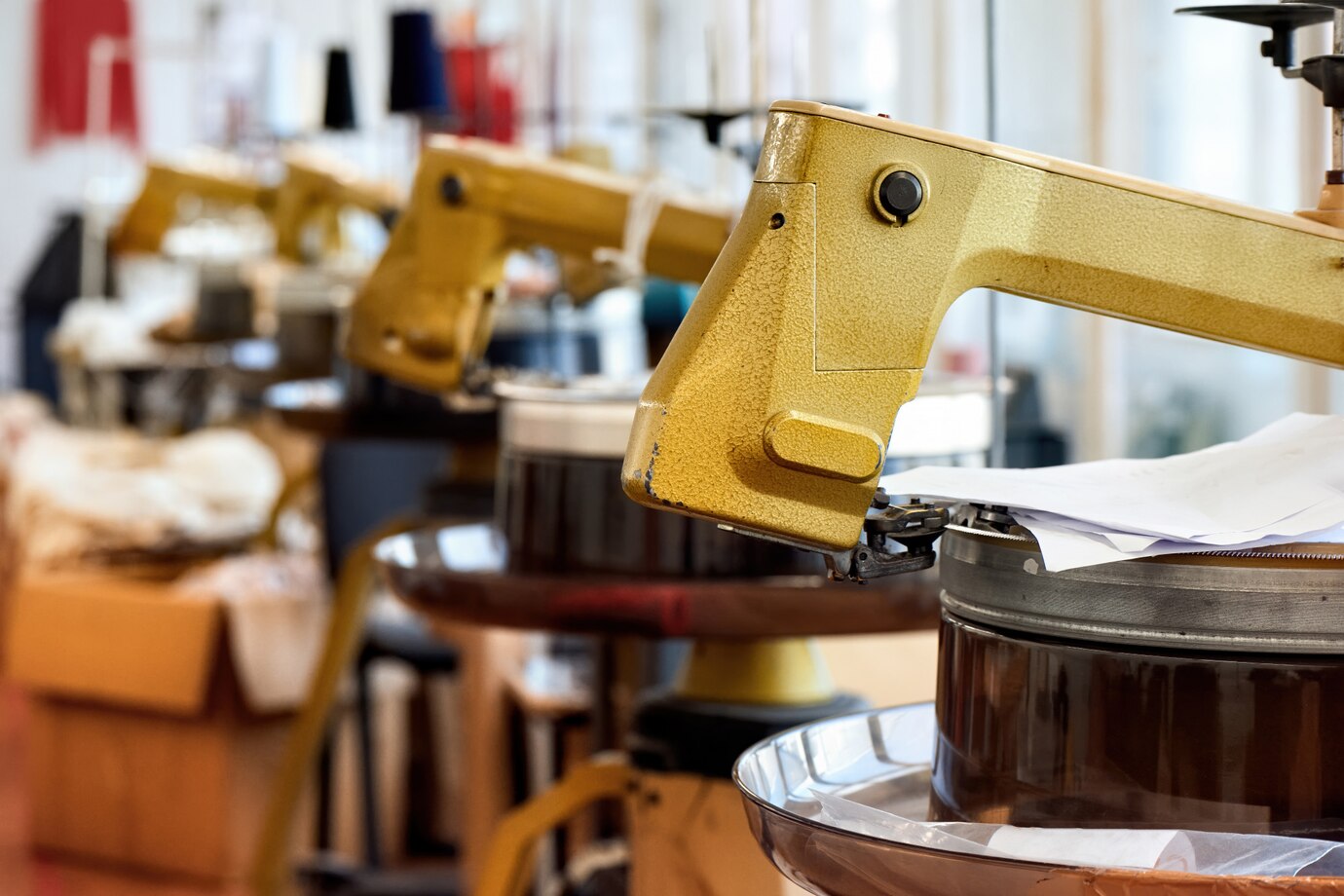
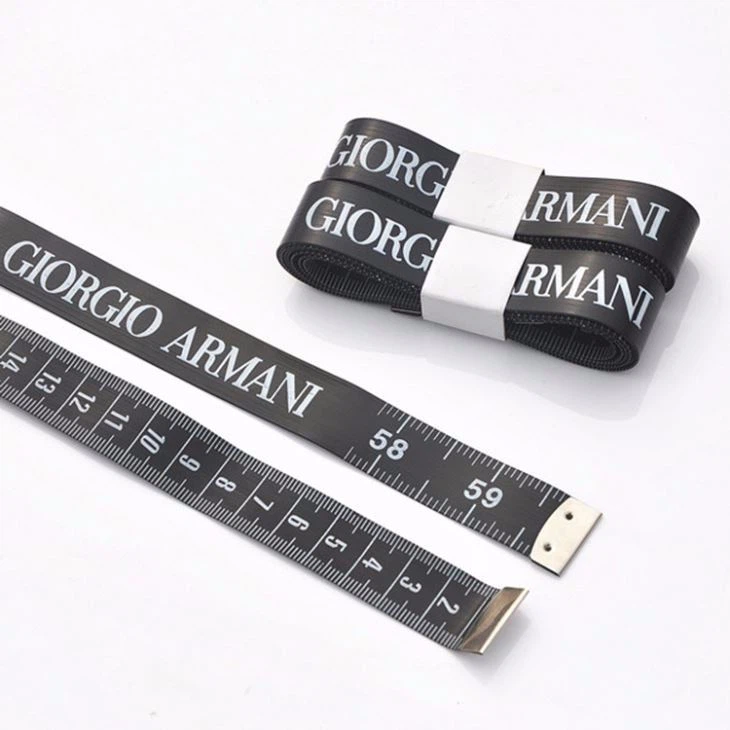
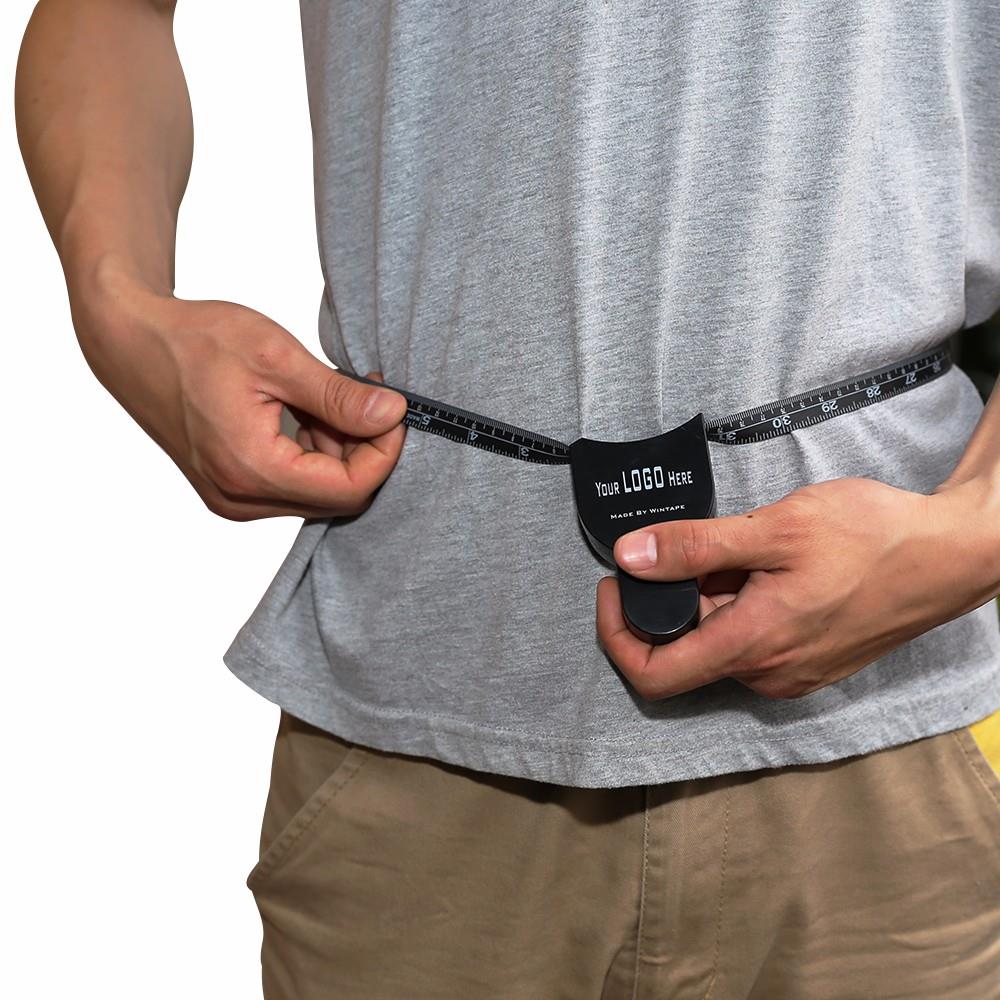
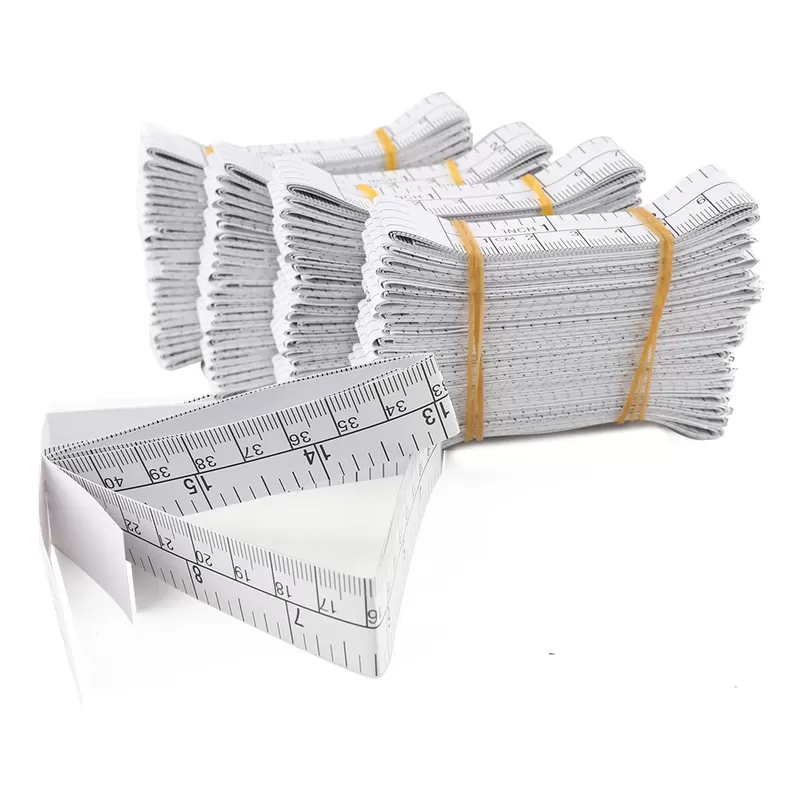
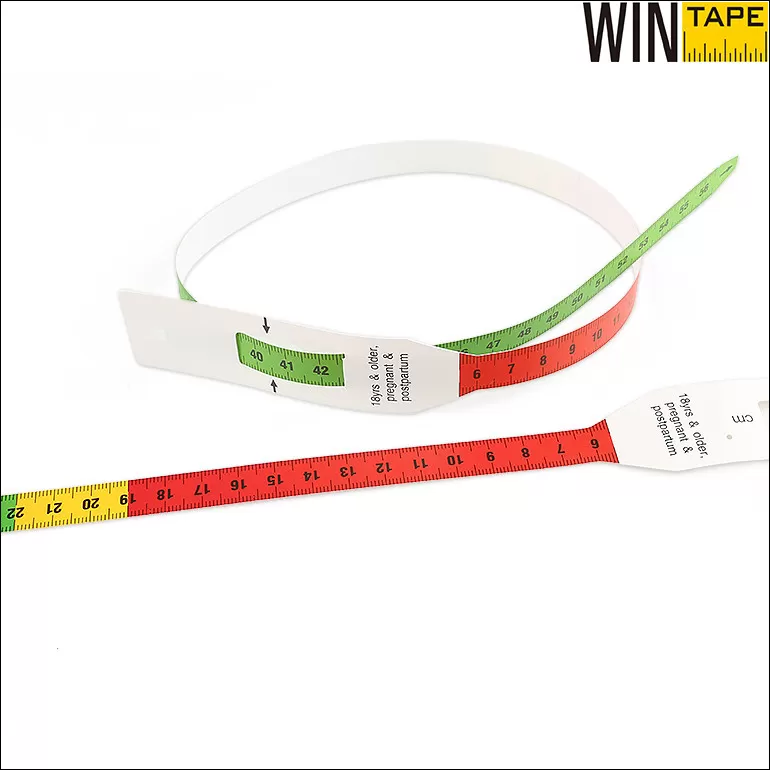

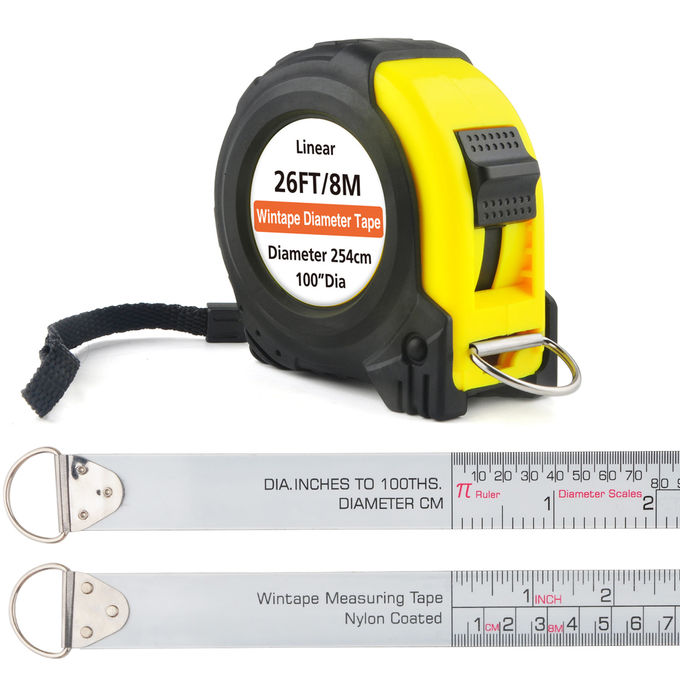
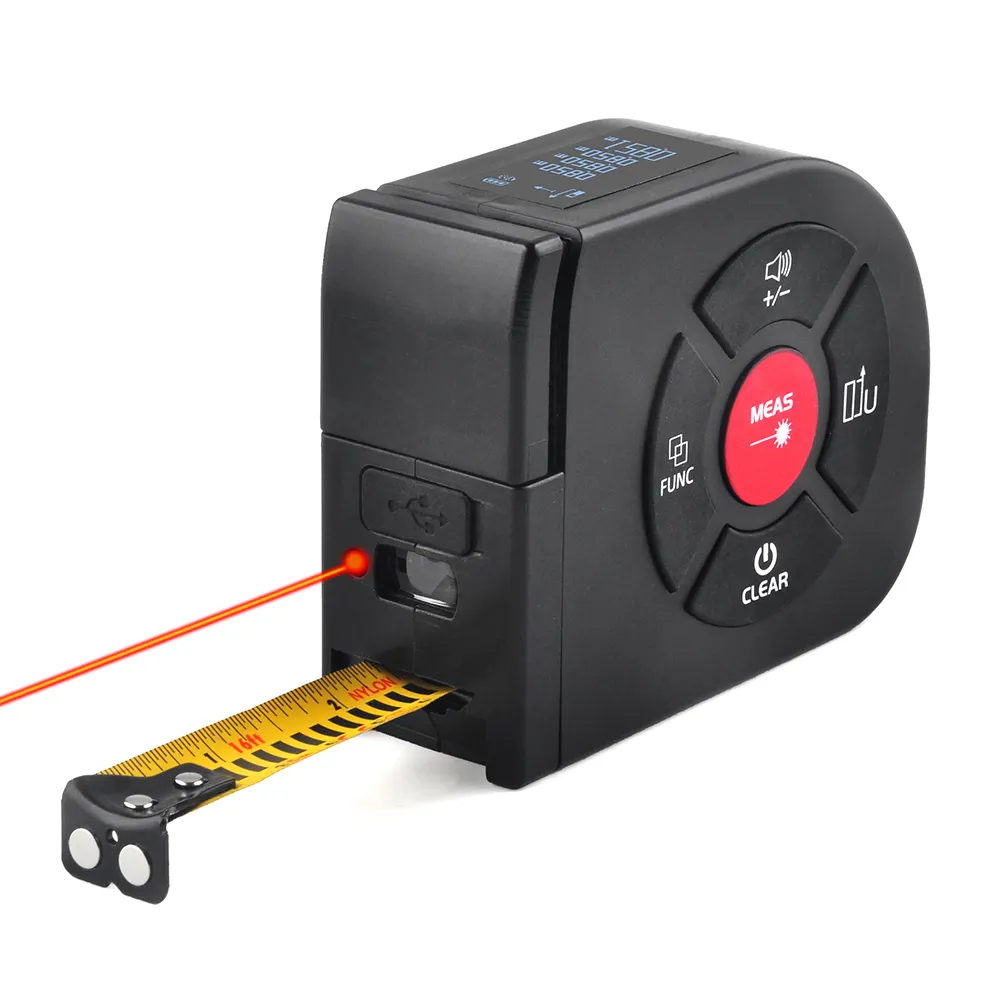

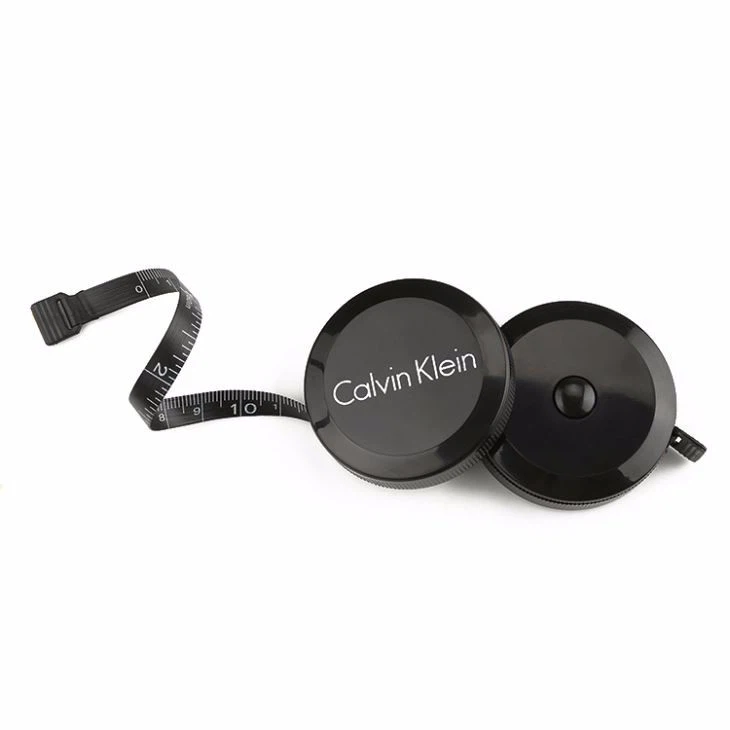
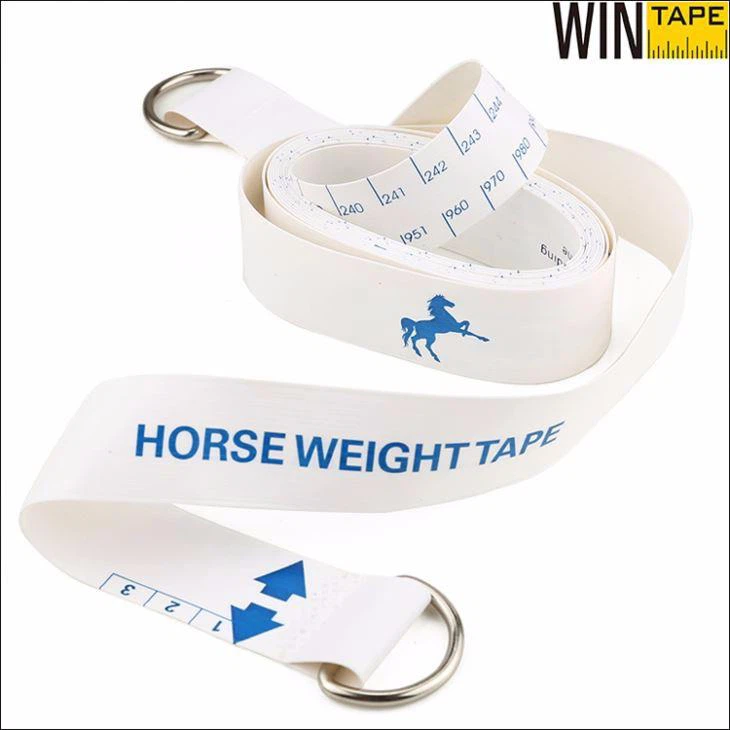
.webp)
.webp)
